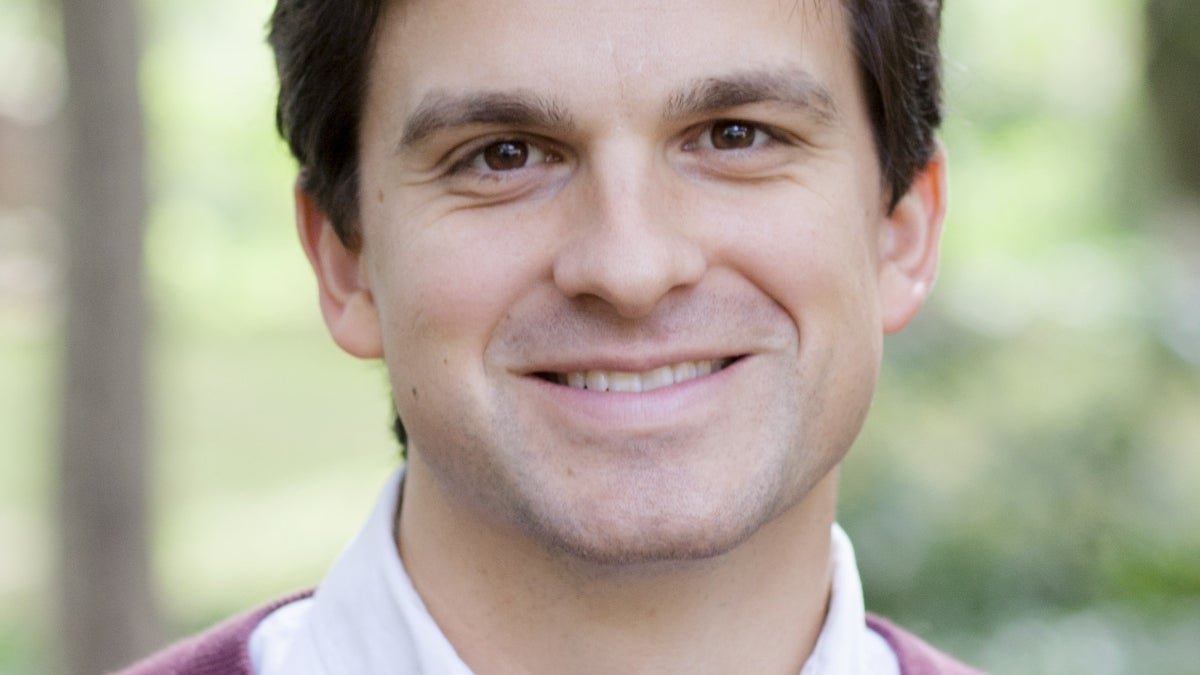ASU professor helps students critically engage with their own lives

Jason Bruner, assistant professor in the School of Historical, Philosophical and Religious Studies, teaches undergraduate and graduate courses in religious studies.
Jason Bruner was inspired by his engaging professors in college and graduate school. He hoped to emulate the example set forth by pursuing a doctoral degree and becoming a professor.
“I experienced how a professor could make a tremendous difference,” said Bruner, assistant professor in the School of Historical, Philosophical and Religious Studies at Arizona State University. “And, I knew the kind of impact they had on my studies and research.”
Bruner received concurrent bachelor’s degrees in religious studies and Spanish from Gardner-Webb University in 2005. Three years later, he completed a Master of Theological Studies at the Weston Jesuit School of Theology. In 2013, he received a Doctor of Philosophy in modern Christian history from Princeton Theological Seminary in Princeton, New Jersey.
“I was really attracted to the possibilities ASU offered in terms of teaching and research,” Bruner said. “The faculty position I was hired to fill sought someone with a research agenda in Christianity outside of the so-called ‘West,’ so I applied and was delightfully surprised to be offered the job.”
In fall 2013, Bruner joined the faculty in the College of Liberal Arts and Sciences. He teaches undergraduate and graduate courses in religious studies, including types of religious expression, an introduction to Christianity, the New Testament, the formation of the Christian tradition and explorations in sacred biography.
“At ASU, our students come from all over the world and have interests in all sorts of things,” said Bruner. “I appreciate it when students speak from their own academic specializations or life experiences. These connections are important because in addition to making sure they master certain material or concepts, I also want my students to have a variety of tools with which they can critically engage their own lives.”
Bruner’s research interests include the history of Christianity, religion in Africa, the Christian missionary movement, European imperialism and evangelicalism. He’s also been involved in several research and teaching projects, such as the comparative study of genocide and the relationship between religion and global health.
“I like the dynamism of teaching and research. I like the feeling of not knowing where a question might take a class or take me in my research,” said Bruner. “I really enjoy having these kinds of open intellectual spaces that a university provides and facilitates. It’s also fun to be around people who are curious, inquisitive and experts in just about anything.”
Bruner just finished “Living Salvation in the East African Revival in Uganda,” a book about a Christian revival movement in colonial Uganda. He’s also currently working on several articles that deal with religion in relation to health and medicine in East Africa, both in the colonial and post-colonial eras.
“Within religious studies, I think many of us are struck by what seems to be the ubiquity of ‘religion’ in the world — as seen on the front page, or homepage, of any newspaper — and the apparent invisibility of the academic study of religion in higher education,” Bruner said. “Showing the importance and relevance of what our discipline can bring towards understanding cultures, traditions and globalization, in addition to questions of ethics, meaning and identity, are crucial for the discipline.”
Bruner believes the relevance of the liberal arts today is the enduring need to help society be critically and curiously open to the beautiful and challenging complexities of the world and cosmos. He also hopes his students learn the ability to empathize — to imagine other possibilities and appreciatively consider others’ experiences, identities, beliefs and practices.
“Always be kind, grateful and gracious,” he said. “And aware of what really fulfills you.”
More Arts, humanities and education

ASU workshop trains educators, professionals from marginalized communities in disaster science
As devastating as hurricanes can be to anyone caught in their paths, they strike marginalized communities even harder.To address…

ASU’s Humanities Institute announces 2024 book award winner
Arizona State University’s Humanities Institute (HI) has announced “The Long Land War: The Global Struggle for…

Retired admiral who spent decades in public service pursuing a degree in social work at ASU
Editor’s note: This story is part of coverage of ASU’s annual Salute to Service.Cari Thomas wore the uniform of the U.S. Coast…